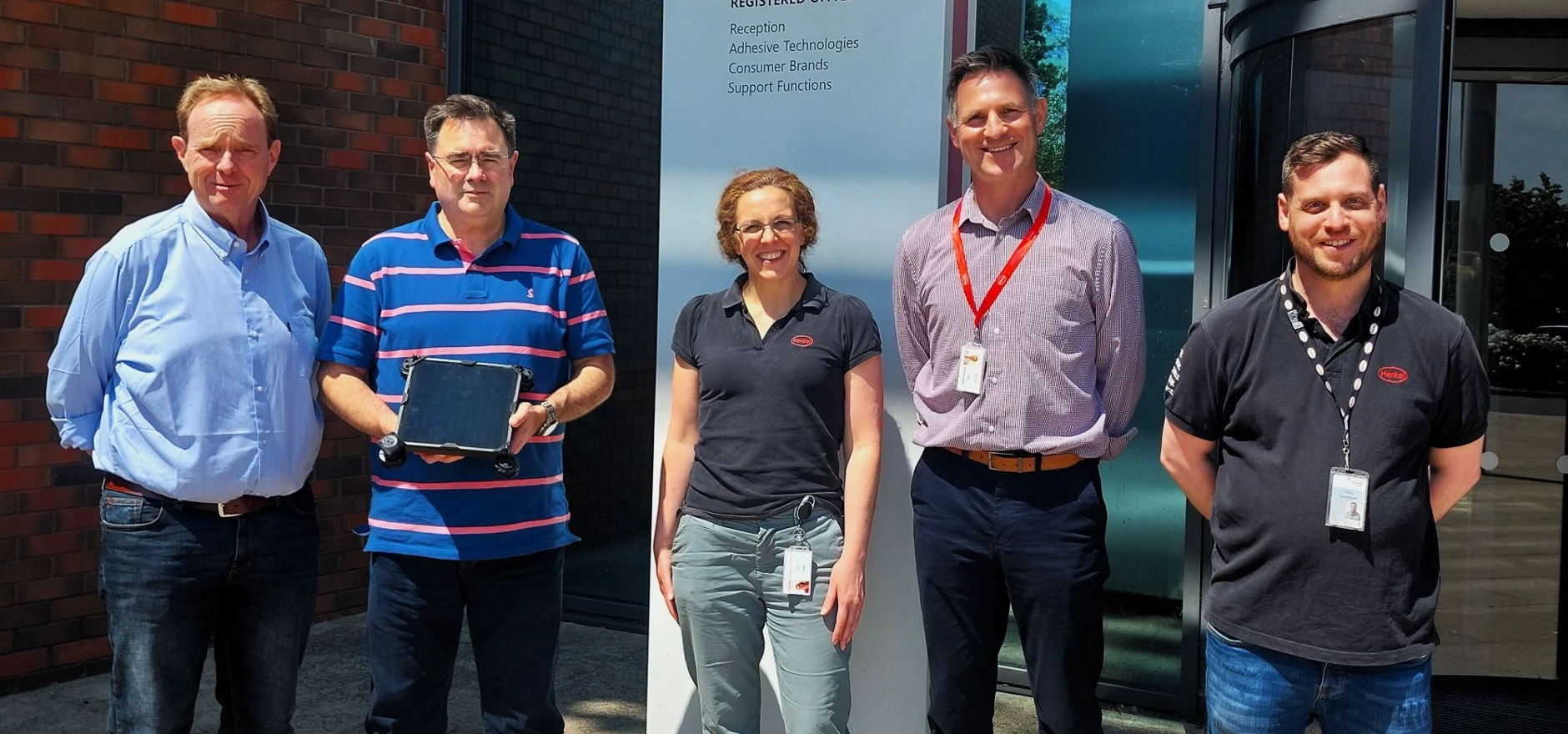
Partner Article
Solar pioneers are glued to groundbreaking innovation that will revolutionise marine sector
SOLAR pioneers are glued to a cutting-edge innovation that will revolutionise renewable energy capture in the marine sector.
Anglesey and Manchester-based Grafmarine is working in partnership with Henkel, the German multinational consumer and industrial goods manufacturer.
With international sites including the UK and Ireland, Henkel’s technologies are used in many different applications and industries, and they are the name behind many well-known brands such as Loctite, Sellotape and Unibond.
The two businesses are collaborating on a hard-wearing, anti-corrosive adhesive that will bond Grafmarine’s state-of-the-art NanoDeck tiles to any flat surface, namely ships and vessels.
Grafmarine’s AI solar management system can capture, store, and remotely manage clean energy while at sea, and demand is accelerating quickly as leaders in global shipping markets are working towards net zero, driven by customer need and legislative changes.
Commercial Director Nigel Marc Roberts said: “To be working alongside Henkel and developing different ideas is a privilege, as they are a world leader in bonding technology.
“For us the focus is on ease of application, an adhesive that can effectively ‘glue’ the tile to the vessel, and that’s something they are trialling.
“The process is incredible and a game-changer for us, as it makes the whole system less labour intensive, reduces thermal stress, and the tile can be attached to any type of material or surface."
Engineering Director Chris Russell added: “Henkel have been an amazing collaborative supply partner and together we have been working tirelessly on this new, sustainable and safe solution for our NanoDeck tiles.
“The Henkel product will enable us to mass install them onto any vessel quickly, seamlessly and with little cost - we are delighted to have them as our key long-term strategic partner.”
Grafmarine has designed rugged square panels to be produced alongside its more aesthetic hexagonal model, with a focus on different sectors.
“The square is ideal for the hard-wearing, extreme conditions of the shipping industry while the hexagonal alternative is more aesthetically pleasing and attracting a lot of interest in the luxury super-yacht market,” said founder Martin Leigh.
“Both are game changers and will have a major impact on how clean energy is stored and managed at sea.”
A spokesperson for Henkel added: “We have a high focus on identifying and collaborating with sustainable opportunities, so being able to work with Grafmarine on this innovative solution for greener energy production in the shipping industry aligns perfectly with our core values.”
This was posted in Bdaily's Members' News section by Martin James Williams .






 A legacy in stone and spirit
A legacy in stone and spirit
 Shaping the future: Your guide to planning reforms
Shaping the future: Your guide to planning reforms
 The future direction of expert witness services
The future direction of expert witness services
 Getting people into gear for a workplace return
Getting people into gear for a workplace return
 What to expect in the Spring Statement
What to expect in the Spring Statement
 Sunderland leading way in UK office supply market
Sunderland leading way in UK office supply market
 Key construction developments in 2025
Key construction developments in 2025
 Mediation must be part of planning process
Mediation must be part of planning process
 From apprentice to chief financial officer
From apprentice to chief financial officer
 Don't stifle growth with apprenticeship cuts
Don't stifle growth with apprenticeship cuts
 The start-up landscape: What lies ahead in 2025
The start-up landscape: What lies ahead in 2025
 JATCO adds welcome drive to automotive sector
JATCO adds welcome drive to automotive sector